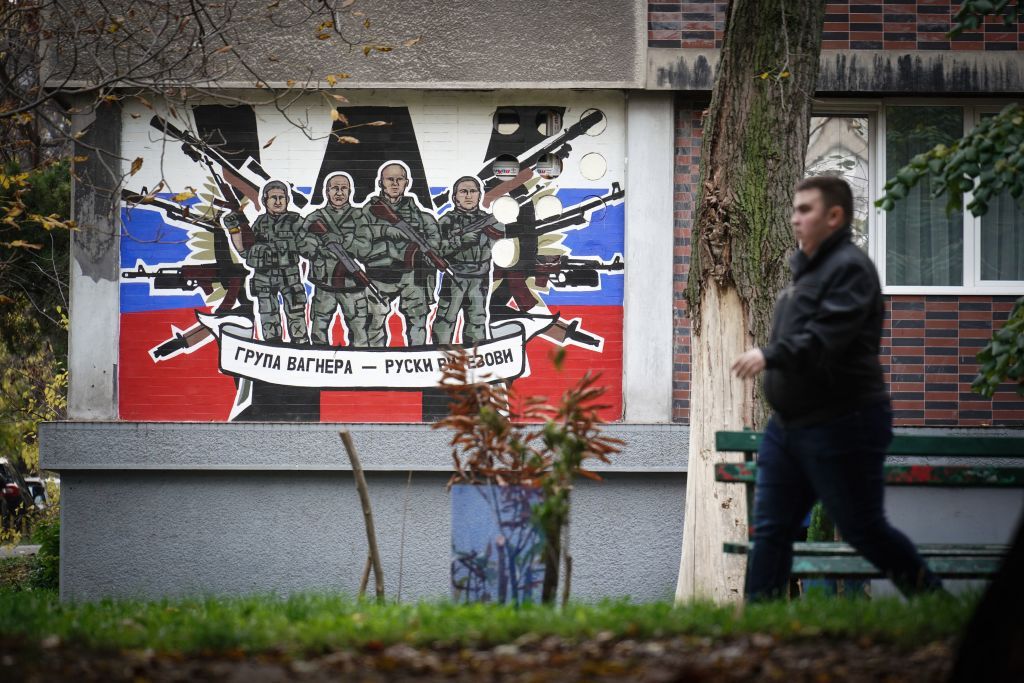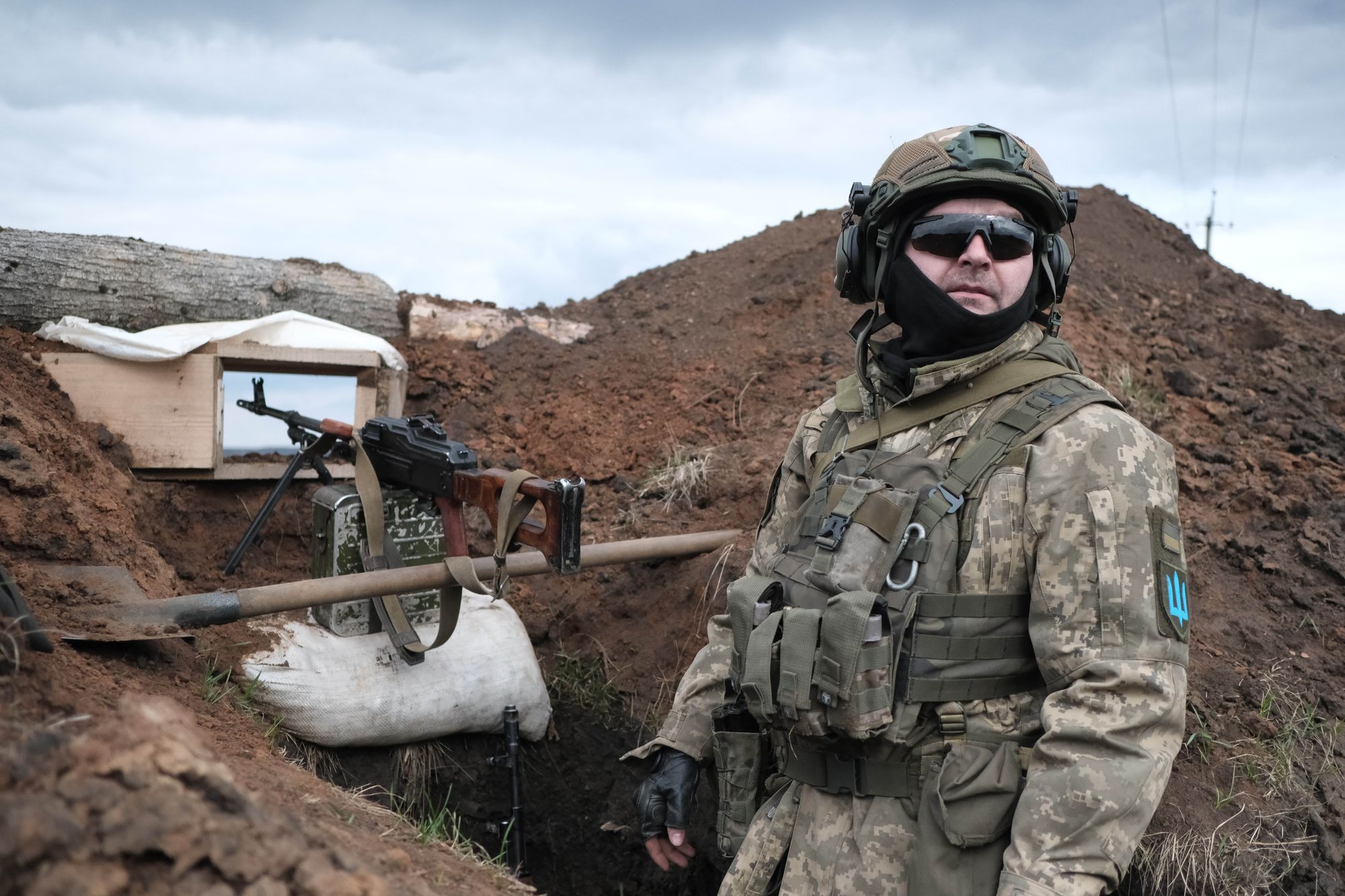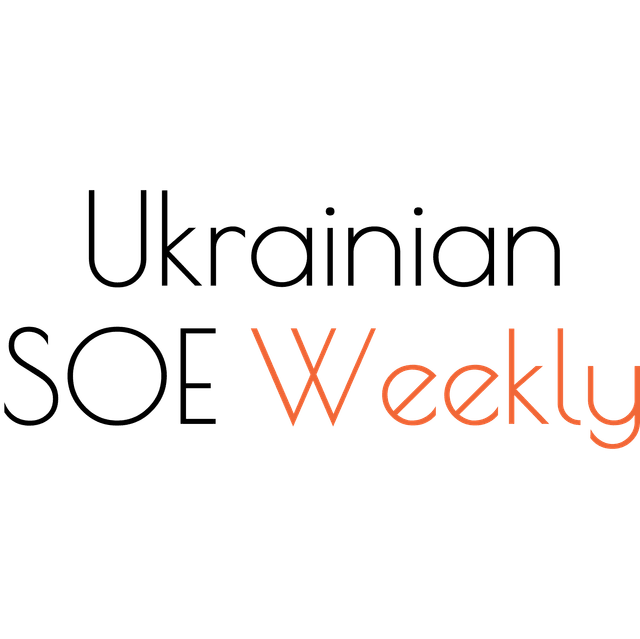Ukrainian State-Owned Enterprises Weekly – Issue 86

Editor’s Note: This is issue 86 of Ukrainian State-Owned Enterprises Weekly, covering events from April 29 - May 5, 2023. The Kyiv Independent is reposting it with permission.
Ukrainian SOE Weekly is an independent weekly digest based on a compilation of the most important news related to state-owned enterprises (SOEs) and state-owned banks in Ukraine. This publication was produced with the financial support of the European Union within the project “Supporting Ukraine in rebuilding and recovery” implemented by the KSE Institute. The contents of this publication are the sole responsibility of the editorial team of the Ukrainian SOE Weekly and do not necessarily reflect the views of the European Union.
Corporate governance of SOEs
PrivatBank’s annual report approved; the bank will pay Hr 24.2 billion ($) in dividends to the state budget for 2022. On April 28, the Cabinet of Ministers approved PrivatBank’s annual reporting for 2022. This includes:
- the banks’ annual report for 2022, including the supervisory board’s report;
- the supervisory board’s remuneration report; and
- measures to be taken as a result of considering the supervisory board’s report.
The above documents were not published along with the Cabinet’s decision and were not yet publicly available otherwise at the time of writing. A remuneration report was publicly available on PrivatBank’s website earlier.
In addition, the Cabinet approved the following allocation of PrivatBank’s net profit of Hr 30.25 billion ($) in 2022:
- 80% (Hr 24.2 billion, or $) to pay dividends to the state budget;
- 5% (Hr 1.5 billion, or $) to the reserve fund; and
- 15% (Hr 4.5 billion, or $) to cover losses accumulated in previous years.
In SOE Weekly (Issue 85), we reported that the Cabinet of Ministers established how much SOEs must pay in dividends for 2022. While most SOEs must contribute 50%, PrivatBank must give 80%.
In Issue 78, we reported that PrivatBank paid over Hr 197.7 million ($) to its top executives and supervisory board members in 2022.
The Cabinet approves Ukrzaliznytsia’s annual report for 2022. The disclosure, approved on April 28 includes the company’s audited consolidated financial statements, the supervisory board’s report, and the executive board’s report for 2022.
The above documents were not published along with the Cabinet’s decision and were not yet publicly available otherwise at the time of writing.
In SOE Weekly (Issue 72), we reported that in 2022, Ukrzaliznytsia saw a net loss of Hr 10.8 billion ($). The company expects losses of Hr 20.2 billion ($) in 2023 due to the large social burden and restrictions on cargo transportation.
In Issue 70, we reported that on Dec. 30, the Cabinet of Ministers approved Ukrzaliznytsia’s consolidated financial plan for 2023.
As we reported two years ago (Issue 27), no information was available to indicate that the Cabinet had considered Ukrzaliznytsia’s annual report, the supervisory board’s report, the executive board’s report, and the distribution of profit for 2020, although it had done so for 2019 and 2021.
In SOE Weekly (Issue 23), we reported that, according to the 2020 results, Ukrzaliznytsia took a net loss of Hr 11.9 billion ($). The government has never made any statements on such performance of the company.
This was still the case at the time of this writing.
The Ministry for Communities, Territories, and Infrastructure Development will check all SOEs under its jurisdiction for corruption, starting with Boryspil International Airport. On May 2, the Ministry for Communities, Territories, and Infrastructure Development announced the launch of a pilot project to audit the corruption prevention system at Boryspil International Airport.
According to the ministry, the procurement and contracting system will be analyzed, and potential risk areas and ways to eliminate them will be identified. This will help to prevent abuse and avoid conflicts of interest at the enterprise. The project will last for two months.
Boryspil Airport has become the first SOE under the ministry’s jurisdiction to launch a risk assessment and audit project like this. Afterwards, this programme will be repeated at other SOEs, the Ministry added.
Cabinet launches corporatization of Energoatom. On May 2, the Cabinet of Ministers approved the conversion of the state nuclear operator Energoatom into a joint-stock company to comply with the law.
The Cabinet established a commission for this purpose. It is chaired by Oleksii Sobolyev, Deputy Minister of Economy, and includes Petro Kotin, Energoatom’s CEO, Farid Safarov, Deputy Minister of Energy, and another eight members.
This commission has the following key tasks:
- to develop a draft plan to transform Energoatom and submit it for the government’s approval; and
- to submit documents needed to contribute Energoatom’s property to the authorized capital of the corporatized successor, the new joint-stock company Energoatom.
In SOE Weekly (Issue 80), we reported that, on March 17, President Volodymyr Zelensky signed a law on the corporatization of Energoatom.
In Issue 79, we reported that the corporate governance reform of Energoatom was among the government’s top priorities for 2023. According to the Cabinet’s Priority Action Plan, Energoatom was to be converted into a joint-stock company by May 2023. The nuclear power operator is also slated to receive a competitively selected supervisory board with an independent majority. The deadline is November 2023.
In Issue 74, we reported that Verkhovna Rada passed draft law No. 8067 (in the second reading) on the corporatisation of Energoatom on Feb. 6. For a detailed account of the corporatization of Energoatom, see SOE Weekly’s Issues 41, 53, 58, 69, 74, and 79.
Energy
Ukrenergo endures another Russian missile and artillery attack on its energy facilities. On May 4, Ukrenergo reported that Russia launched another missile and artillery attack on Ukraine’s energy infrastructure.
The attack started on May 3 afternoon and continued into the night. According to Ukrenergo, on May 3, engineers from Khersonoblenergo were killed by the massive Russian missile and artillery shelling.
As a result of the shelling, the equipment of electricity distribution companies (i.e., not Ukrenergo’s equipment) in Chernihiv, Kharkiv, Sumy, Donetsk, Dnipropetrovsk, Zaporizhzhia, and Kherson oblasts suffered the most damage. Trunk power grids did not sustain any new damage, Ukrenergo added.
According to Ukrenergo, at midnight, Russia launched a missile attack on a power generation facility in Donetsk Oblast, damaging equipment and cutting off power to about 186,000 consumers.
Ukrenergo emphasized that despite all the losses and damage, Ukraine’s power system continues to operate in a balanced manner and there is no electricity shortage.
In SOE Weekly (Issue 78), we reported on the previous wave of Russia’s missile and drone attacks on March 9. This was Russia’s 15th mass strike since the attacks started.
After every Russian mass missile attack on Ukraine’s vital infrastructure, emergency outages often last for days due to the ongoing repair works. During such outages, people in Ukraine may be left without electricity, heating, water supply, or access to mobile phone networks.
Privatization
The SPFU will try to sell the dilapidated Elektronmash for the third time. On May 3, the State Property Fund of Ukraine (SPFU) announced a third attempt to auction off the Elektronmash factory in Kyiv.
The SPFU scheduled the auction for May 29, with a starting price of Hr 61.3 million, or $ (excluding VAT). The plant’s property includes 37 real estate objects (workshops, administrative buildings, warehouses, and a 16-storey office centre).
According to SPFU, Elektronmash was one of the most powerful computer manufacturing companies in the former Soviet Union, employing around 10,000 people. During Ukraine’s transition to a market economy, the plant was unable to adapt to competition and slowly decayed into ruin.
The company has overdue accounts payable of Hr 21.4 million ($). In 2022, Elektronmash suffered a loss of Hr 8.2 million ($), in 2021 – Hr 24.0 million ($), and in 2020 – Hr 10.9 million ($), the SPFU added.
The company has also been cutting its workforce: In 2020, Elektronmash employed 175 people, in 2021 it had 149, and in 2022, just 127.
According to the SPFU, the previous two auctions for the sale of Elektronmash could have brought Hr 970 million ($) or Hr 430 million ($) to the budget, but unscrupulous investors failed to complete the purchases on time.
See more in SOE Weekly’s Issues 51, 56, and 62.
Confiscation of the aggressor state’s assets, nationalization, and asset seizure
Ukrnafta wants to manage Ukrnaftoburinnya, owned by Kolomoisky, Fuks, and Khomutynnik. On March 3, Ekonomichna Pravda (EP) reported that Ukrnafta’s CEO Sergii Koretskyi asked the Ministry of Economy to hand the corporate rights of Ukrnaftoburinnya to Ukrnafta. The state previously took these corporate rights away from its owners.
According to the registry, Ukrnaftoburinnya’s ownership is split between Ares Systems Ltd (22.49%), Deripon Commercial Ltd (22.49%), JKX Ukraine B.V. (10%), and Ariana Business Limited (22.49%). According to the media, the company is associated with businessmen Ihor Kolomoisky, Pavlo Fuks, and Vitaliy Khomutynnik.
Ukrnaftoburinnya is one of the largest private gas producers in Ukraine, producing 725.4 million cubic metres in 2021. According to EP, its 2021 net profit was Hr 5.65 billion ($). In 2022, it fell to Hr 3.77 billion ($).
Ukrnafta’s letter to the Ministry of Economy was dated April 27. In the letter, Koretskyi claims that Ukrnaftoburinnya was developing the Sakhalin oil and gas condensate field, but focused on gas production, although the oil reserves at the field are greater.
Koretskyi’s letter says that Ukrnafta would be able to increase oil production in the Sakhalin area by 14% and increase gas production by an unstated amount.
Ukrnafta also wants to take over Sirius-1 LLC, Sakhalinske LLC, and East Up Petroleum LLC, which are Ukrnaftoburinnya’s partners in joint venture agreements in the Sakhalin field. Shares of these companies had been seized and given to the Asset Recovery and Management Agency (ARMA).
Meanwhile, EP reported that on May 3, the Pecherskyi District Court of Kyiv granted Ukrnaftoburinnya’s motion to cancel seizure of Ukrnaftoburinnya’s shares. The ruling of the investigating judge is not subject to appeal, the ruling states. The full text of the ruling will be published on May 8.
However, on May 4, following a new motion of the Prosecutor General’s Office and the State Investigation Bureau (DBR), the court seized the corporate rights of Ukrnaftoburinnya and transferred these to ARMA again.
In SOE Weekly (Issue 84), we reported that ARMA received all shares of Ukrnaftoburinnya after the asset was seized on April 7.
The shares were seized in connection with a criminal investigation into the development of Ukraine’s largest explored gas field, the Sakhalin, in Kharkiv Oblast.
See more about this case in Issue 84.
SOE Weekly Event
Discussion: Stepping on the same rake – Salary populism for the public sector. On May 4, the SOE Weekly hosted this discussion in co-operation with Ekonomichna Pravda.
The speakers included: MP Volodymyr Tsabal and SOE Weekly’s team members Andriy Boytsun, Oleksandr Lysenko, and Dmytro Yablonovskyi (moderator).
As we reported in SOE Weekly (Issue 83), on April 10, the Verkhovna Rada adopted draft law No. 8312. Among other things, this law set a salary cap of civil servants and SOE employees in wartime (effectively, Hr 67,000, or $). On April 11, MP Volodymyr Tsabal (secretary of the Rada’s budget committee, the Voice faction) proposed a draft parliamentary resolution to cancel the decision to adopt the above law.
The event’s speakers discussed the negative consequences of such a cap, including its adverse effects on the corporate governance of SOEs and its inconsistency with Ukraine’s commitments under the EU’s macro-financial assistance programme and the IMF’s EFF programme. They also agreed that such limitations would not lead to any actual saving on budgetary costs.
The recording of the discussion in Ukrainian is available here.













